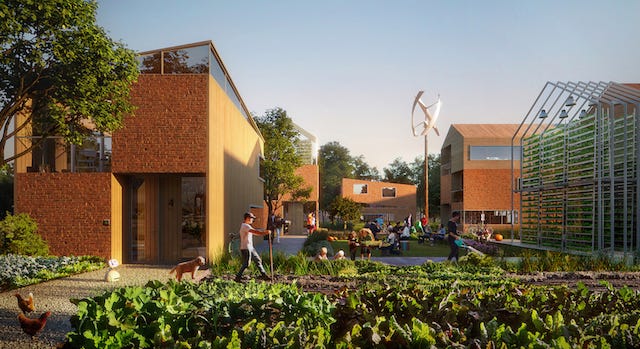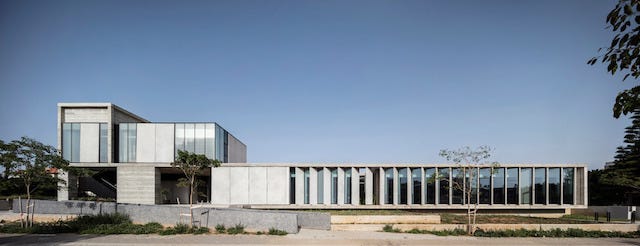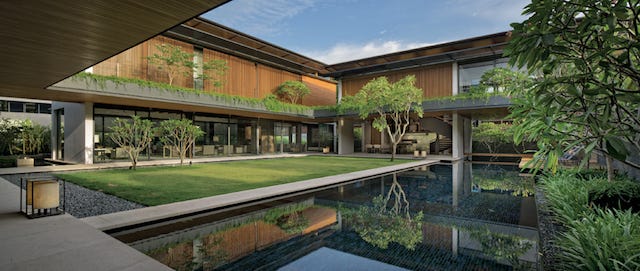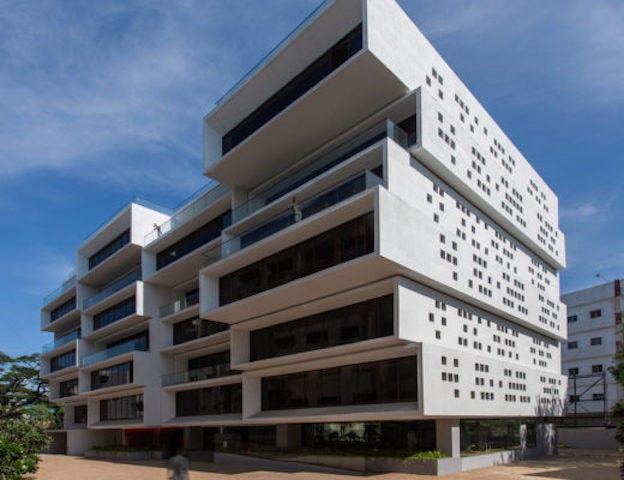In Conversation with Ben van Berkel
The founder of Dutch practice UNStudio isn't just an architect, but a think-tank researcher, urbanist, technopreneur, and a visionary who is determined to make urban living better for everyone.
The moniker starchitect is not something that Dutch architect and urban planner, Mr Ben van Berkel (pictured below; photo: Els Zweerink), dwells too much on. In an exclusive interview over the phone from his Amsterdam-based headquarters, Mr Van Berkel shares that he had recently returned from a little over a two-week break in the Swiss Alps, and that life in the studio was beginning to resume as more of his staff had started returning to work post the Covid-19-induced work from home arrangement.

His Amsterdam-based practice, known for such seminal projects as the Erasmus Bridge in Rotterdam, the Netherlands, and Mercedes-Benz Museum in Stuttgart, Germany, among several other projects around the world including Singapore, is on a mission to bring a more humanistic living to cities – one that encourages social analogue interactions. With offices in Shanghai, Hong Kong, and Frankfurt that work like think-tanks and research labs, his team of over 200 architects comes up with new typologies of urban living that will enable the 21st-century city dwellers to adapt their lifestyle with the constantly evolving world in a sustainable way. His progressive approach recently garnered the firm a World Gold for The Scotts Tower in Singapore (pictured below; photo: Darren Soh) at the prestigious FIABCI World Prix d’Excellence Prize in the high-rise residential category.

Mr Van Berkel is convinced that while the urban density might be impacted in the way building programmes are designed, more than 70% of the world’s population will live in cities by 2050. To this effect, UNStudio and its sister technology firm UNSense have created testing grounds for new, sustainable urban typologies (pictured below: Brainport Smart District project by UNStudio in Helmond, Netherlands; rendering: Plomp) that will address the challenges associated with urban living. Some of these challenges include creating an autonomous system of energy and food production, a symbiotic mechanism for senior care and childcare – all within the ambit of community living and creating opportunities for human interactions that benefit everyone within such communities.

He also speaks about how ethical use of data is one of the prime considerations for UNSense and it’s designed in a way that discourages its commercialisation by large companies. Read the full interview here.

This week, we cast an eye on new projects across Asia that emphasise the value of contextual building. A cultural museum in Tel Aviv (above; photo: Amit Geron,) by A.Lerman Architects; an office building in the southern Indian city of Chennai by Sanjay Puri Architects; a mountainside luxury hotel in the Indian Himalayas by Canadian firm yh2 that draws on vernacular architecture; an artistic skincare clinic in Bangkok; a sci-fi-inspired office in Guangzhou by 9Studio Design Group; a book review detailing the contemporary tropical modernist architecture of a private residence in Singapore by Ernesto Bedmar Architects; and finally a photo journal of the world’s first floating Apple store on the waters of Singapore’s Marina Bay by architectural photographer Kevin Siyuan.

Chancery Lane, Singapore by Ernesto Bedmar Architects is the subject of a collectible book by Oscar Riera Ojeda. Photo: Claudio Manzoni

Akshaya office building by Sanjay Puri Architects in Chennai, India. Photo: BRS Sreenag

Apple Marina Bay Sands; photo: Kevin Siyuan

Taj Rishikesh in the Indian Himalayas by Montreal firm yh2. Photo: Maxime Brouillet
Read all this and more on DE51GN. We care about our built environment and hope you do, too. Through this platform, we want to bring you impactful stories from across Asia, and raise awareness about important and common issues that urban cities around the world are facing. If you liked reading any of the stories here, do write in with your comments and tell us about your favourite topics, and share them on with others as that’s the best way for people to get to know about us.
We will be back next week with more insightful content. Until later!



